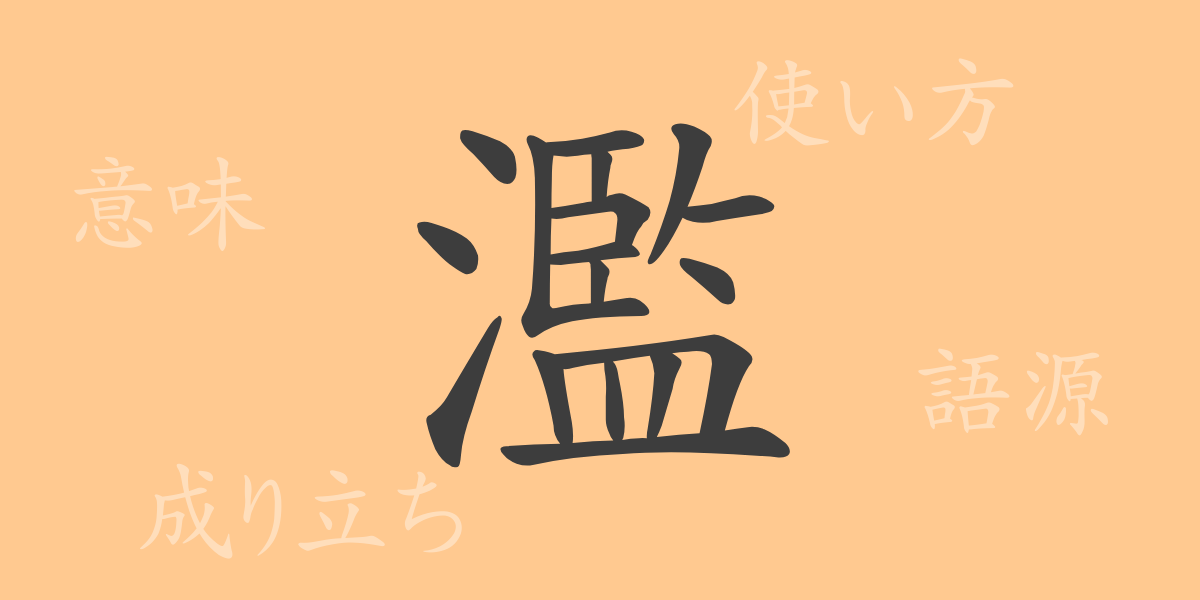In the Japanese language, there are numerous kanji characters that carry deep emotions and meanings. Among them, the kanji “濫” (ran) is a vocabulary frequently used in everyday life, yet it holds a rich history and meaning behind it. In this article, we will explore the origin, meaning, usage, and how “濫” (ran) is used in Japanese culture.
Origin of 濫 (ran)
The kanji “濫” (ran) is a character that originated from ancient China, composed of “氵” (sanzui), which represents water overflowing, and “監” (kan), which indicates sound. Originally, “監” (kan) meant to supervise, and with the addition of “氵” (sanzui), it came to represent the state of water overflowing beyond control. Thus, “濫” (ran) evolved to signify something exceeding its limits from the notion of water overflowing.
Meaning and Usage of 濫 (ran)
The kanji “濫” (ran) means “to spread indiscriminately” or “to exceed limits.” For example, “濫費” (ranpi) means to waste money, and “濫用” (ranyou) refers to the improper use of power. Additionally, “濫造” (ranzou) means to produce in large quantities without planning, often leading to negative consequences. In this way, “濫” (ran) is frequently used to express negative situations in Japanese.
Reading, Stroke Count, and Radical of 濫 (ran)
The kanji “濫” (ran) plays a role in expanding the range of expression in Japanese, both in its form and meaning.
- Reading: On’yomi (音読み) is “ラン” (ran), and it has no Kun’yomi (訓読み)
- Stroke Count: 23 strokes in total
- Radical: 水 (mizu, sanzui) radical
Idioms, Phrases, and Proverbs Using 濫 (ran) and Their Meanings
Idioms, phrases, and proverbs that include “濫” (ran) utilize its strong meaning in various contexts. For example, the idiom “濫觴” (ranshou) means the beginning of an event, indicating the starting point of a new movement. “濫読” (randoku) refers to reading a large number of books indiscriminately, often used critically to describe prioritizing quantity over the quality of reading. Additionally, “濫費” (ranpi), as mentioned earlier, means wasting money, suggesting a lack of economic discipline.
Summary of 濫 (ran)
The kanji “濫” (ran) is a character that requires careful use. It implies indiscriminate spreading or actions that exceed limits, adding depth to Japanese expressions. When using “濫” (ran) in writing or conversation, it is important to understand its strong nuance and use it in an appropriate context. Through this exploration, we have deepened our understanding of the weight of the meaning carried by “濫” (ran) and the caution needed when using it.

























